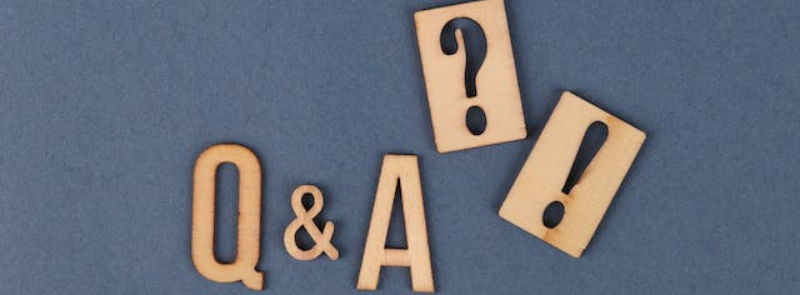
When It Occurs
Every September 24th
Timeline
Days Passed (882)
# Hashtags
#NationalPunctuationDay #PunctuationMarks
September 24th is National Punctuation Day, a celebration dedicated to all punctuation marks. From the humble period to the versatile comma, the discerning semicolon, the inquisitive question mark, and the emphatic exclamation point—these symbols play vital roles in writing. They serve to delineate sentences and their components, ensuring clarity of meaning. Without these punctuation marks, meaning would be muddled or subject to various interpretations. Take a moment to appreciate the importance of punctuation in written communication!
History of National Punctuation Day
- Establishment: National Punctuation Day was founded in 2004 by Jeff Rubin, a former newspaperman and public relations professional. Rubin, who is passionate about proper punctuation, established the day to draw attention to the importance of punctuation and to promote its correct usage.
- Purpose: The day aims to improve writing skills, raise awareness about the significance of punctuation in communication, and encourage people to take pride in their writing.
Significance of National Punctuation Day
- Educational Focus: The day serves as an educational tool to teach and remind people about the correct use of punctuation marks, which are often misused or overlooked.
- Clarity in Communication: Proper punctuation is crucial for clarity and precision in writing. It helps convey the intended meaning of a sentence and prevents misunderstandings.
- Celebration of Language: National Punctuation Day celebrates the richness and complexity of written language and the role punctuation plays in enhancing communication.
How to Celebrate National Punctuation Day
-
Learning and Teaching:
- Workshops and Classes: Attend or organize workshops and classes focused on punctuation. These can cover basic rules, common mistakes, and advanced punctuation techniques.
- School Activities: Teachers can incorporate punctuation lessons into their curriculum. Activities can include punctuation games, quizzes, and writing exercises to engage students and reinforce learning.
-
Writing and Editing:
- Write with Precision: Take the time to write a letter, email, or blog post with meticulous attention to punctuation. Use this as an opportunity to practice and demonstrate your punctuation skills.
- Edit for Punctuation: Review and edit your previous writings, focusing on correcting punctuation errors. This can help improve your writing and reinforce good habits.
-
Creative Engagement:
- Punctuation Challenges: Participate in or create punctuation challenges on social media. For example, post sentences with incorrect punctuation and ask followers to correct them.
- Punctuation Art: Create artwork or posters highlighting different punctuation marks and their uses. This can be a fun and visual way to celebrate the day.
-
Sharing Knowledge:
- Social Media Campaigns: Share tips, facts, and educational content about punctuation on social media using the hashtag #NationalPunctuationDay. Encourage others to join the conversation and improve their punctuation skills.
- Blogs and Articles: Write and publish blogs or articles about the importance of punctuation, common mistakes, and tips for improvement. Share your insights and experiences with a wider audience.
-
Punctuation in Literature:
- Read Books on Grammar: Read books that focus on grammar and punctuation, such as "Eats, Shoots & Leaves: The Zero Tolerance Approach to Punctuation" by Lynne Truss. These books can be both educational and entertaining.
- Quotes and Examples: Share famous quotes and literary excerpts that showcase the effective use of punctuation. Discuss how punctuation contributes to the meaning and impact of the text.
Common Punctuation Marks and Their Uses
-
Period (.):
- Use: Ends a declarative sentence or an indirect question.
- Example: She went to the store.
-
Comma (,):
- Use: Separates items in a list, sets off introductory elements, and separates clauses.
- Example: We bought apples, oranges, and bananas.
-
Question Mark (?):
- Use: Ends a direct question.
- Example: Are you coming to the party?
-
Exclamation Point (!):
- Use: Expresses strong emotion or emphasis.
- Example: Watch out!
-
Apostrophe (’):
- Use: Indicates possession or forms contractions.
- Example: It's John's book.
-
Quotation Marks (“ ”):
- Use: Encloses direct speech, quotes, or titles of short works.
- Example: "The Great Gatsby" is a classic novel.
-
Colon (:):
- Use: Introduces a list, explanation, or quotation.
- Example: She brought three things: a book, a pen, and a notebook.
-
Semicolon (;):
- Use: Connects closely related independent clauses or separates items in a complex list.
- Example: I have a big test tomorrow; I can't go out tonight.
-
Dash (—):
- Use: Indicates a break in thought or adds emphasis.
- Example: She was late—again!
Fun Facts about Punctuation
- Historical Use: Punctuation marks have evolved over centuries. The use of spaces to separate words was a major development in written language.
- Oxford Comma Debate: The Oxford comma, also known as the serial comma, is a subject of debate among writers and editors. It is used before the final "and" in a list of items.
- Punctuation Saves Lives: The famous phrase "Let's eat, Grandma!" versus "Let's eat Grandma!" illustrates how punctuation can drastically change meaning and potentially save lives!
Inspirational Quotes about Writing and Punctuation
- “Punctuation is a courtesy designed to help readers to understand a story without stumbling.” – Lynne Truss
- “Good punctuation is crucial for good writing. The writer who neglects punctuation, or mispunctuates, is liable to be misunderstood.” – Edgar Allan Poe
- “Let’s eat Grandma! Let’s eat, Grandma! Punctuation saves lives.” – Anonymous
Conclusion
National Punctuation Day is an important observance that emphasizes the value of proper punctuation in effective communication. Whether through educational activities, writing and editing, creative engagement, or sharing knowledge, there are many ways to celebrate and improve your punctuation skills. Embrace the nuances of written language, appreciate the role of punctuation, and join the celebration on National Punctuation Day. Clear, precise, and well-punctuated writing enhances understanding and enriches our communication.


